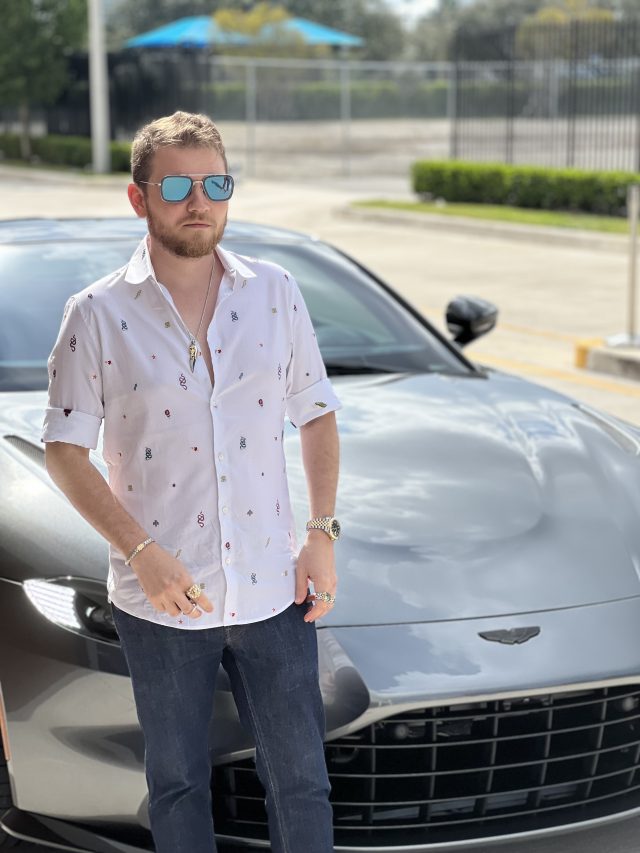Minecraft one of the most popular games on the web recently banned NFTs from their platform. This move by Minecraft has shaken up the NFT world in good and bad ways. On the upside this has drawn more attention to NFTs as a whole and on the downside this has other gaming platforms thinking about doing the same. We caught up with Marc Seal from Sortium Blockchain and chatted him up about this breaking news. This is what he had to say…
Marc Seal, Co-Founder and CEO of Sortium Blockchain Studio (www.sortium.com).
With Minecraft announcing they are disallowing the use of NFTs on their platform, are there any potential risks with allowing NFTs in games similar to Minecraft?
Allowing NFT’s into games must be at the discretion of the game’s creators. It is their content being used and absolutely paramount that any 3rd party team or developers looking to leverage that brand, platform or medium get the necessary authorization as well as legal agreements necessary to proceed.
There is not much room for interpretation here but also no additional risk for other games which choose to embrace NFT’s and Web3 technology. The risk is introduced when companies, such as NFT Worlds, build business that is reliant on the game and community that Minecraft had built, without acquiring proper necessary permissions.
If so, are their ways that those issues can be addressed and resolved rather than simply banning the use of NFTs?
It simply requires NFT creators to ensure they have permission to create derivative content off of the brands they are leveraging for their businesses. This would traditionally require some sort of brand licensing agreement and may not be something all game’s wish to embrace.
For games or brands that do wish to embrace 3rd party content creation they can structure a simple licensing and content approvals system to ensure they have a say over how their brand is represented while still allowing creative teams to build NFTs in a mutually beneficial ecosystem.
Minecraft is now saying that they want all players to have access to the same content. If other game makers follow suit, will there be any advantages for content creators who put in more work under a guideline such as this?
Minecraft specifically caters to creatives and sets out to provide a broad “tool set” and community driven mods/content ecosystem that facilitates shared access. This perhaps is not aligned well with currently executed NFT structures which are more focused on facilitating rarity and exclusivity of content ownership.
I could see a future where games such as Minecraft allow content and mod creators to host their contributions on chain and support community ownership of all content while rewarding creators for what they build, but it should be very understandable why Minecraft specifically does not fit into a model of exclusivity when it is supposed to empower sharing and fairness to create.
I don’t think this will mean all games will follow suit and is rather a single example of ONE type of web3 business structure that a web2 organization did not see value in implementing for their target audience. Web3 technology is a set of tools in its own right and as new business models are built around the technology Minecraft and others may find structures that fit into their core vision which also provide the benefits of Web3 decentralized community ownership.
With the exclusion of things like NFTs, do you think players will be satisfied with only in-game rewards on the platform as compensation to players and creators?
If people enjoy the gameplay some will be satisfied. Players have found ways to monetize their gaming efforts since their inception. However, as we continue down the maturing development of Web3 I believe players will begin to recognize the value NFTs and Web3 technology brings in protecting their claim and ownership over digital content.
As new and existing games adopt Web3 models it is likely players who care about return on their time investments will migrate to ecosystems which empower and support their digital ownership and gamer economic growth.
With the rise in content creators, could decisions like this push creators from even trying out games with these guidelines?
It is very likely some creators will not want to engage with corporations that are unwilling to adopt a web3 ownership model. There are issues today with content creators financially being held captive to the web2 platforms they bring their users, fanbase, and patrons to Web3 models will ensure control and ownership for creators, and it is reasonable to believe many will want to exclusively engage their time and effort into projects and companies that support them with these models.
Minecraft showed concerns that some third-party NFTs may not be reliable and may end up costing players who buy them. Would it make more sense for them to allow players to accept the risk of involvement with these third parties instead of blocking out usage of NFTs entirely?
This is the same risk in any user created content community an individual may wish to support regardless of if it utilizes NFTs or not. If game developers and brands want to support user generated content, then they need to make it clear they face risk should they choose to engage with community or third party driven projects. This isn’t a strong reason alone to specifically target NFT projects. It is my belief that if you wish to truly empower creators and innovators then you should not restrict their creativeness or access to technology and tools to do so.
Do you think this NFT exclusion on Minecraft will have an impact on the world of NFTs/Blockchain games generally? What does this move mean for the NFT gaming market as a whole?
I think that the media attention it brings to the subject is more influential than the actual exclusion itself. We still have some time before Web3/Blockchain/NFTs make it into mainstream gaming. Until then, there will be games which empower NFT development as well as games which have policies to exclude it. As web3 games evolve into the AAA space and new models are built to provide value for creators I believe we will see a transition that evolves to the eventual point you may not even realize you are interacting with NFTs.










